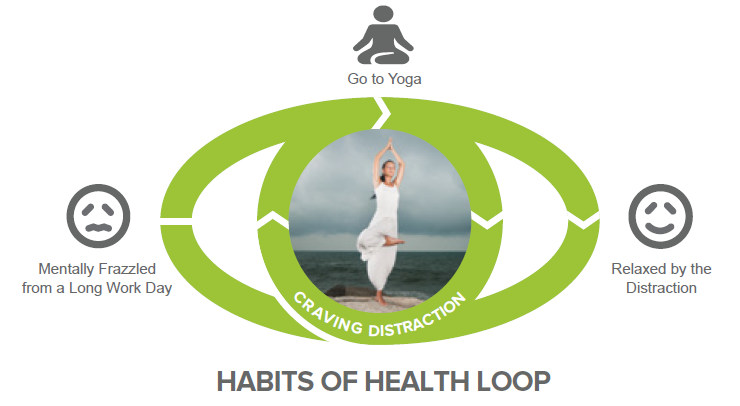Understand trigger cues for emotional eating
Whenever the Optimal Health Community has a discussion about health challenges, the topic of emotional eating inevitably surfaces. When times are good, making the healthy choice feels easy, but if we come home from “one of those” days at work or have a fight with a loved one, the unhealthy choice suddenly feels overwhelmingly like the right choice.
Having a few extra drinks as we scarf down fried food somehow feels good after a bad day. It comforts an emotional response in the short term, but in the long term we are likely to feel even worse about ourselves when we realize what we’ve done. And thus the downward spiral continues.
I’ve written about emotional eating before. Last December, I did an in-depth post on the structure of habit loops to help readers understand the cues that trigger a Habits-of-Disease response. By helping you to understand what moments lead to poor choices and why, you can in turn become more mindful of your actions, which is the first step in reprogramming a Habit of Disease into a Habit of Health.

Understanding how habits work
Understanding how habits work is critical to adopting Habits of Health, so if you haven’t read the earlier post on habit loops you should add it to your reading list. In today’s post though, I want to zoom out and talk about the bigger picture of emotional eating.
Habit loops can be a symptom of a much larger challenge in your life. Yes, being able to Stop. Challenge. Choose. in the moment is important—perhaps going for a walk instead of reaching for a candy bar when you feel upset. If you live in a state of near-constant stress, however, the bigger reward for your health might be in addressing the source of that stress.
Think about it: if one facet of your life leads to dozens of Habits of Disease triggers, eliminating that source can dramatically reduce the number of battles you have with emotional eating.
The value of eliminating stress
Neuron recently published a study where researchers observed the brains of participants when they were forced to choose between healthy and unhealthy foods. When the participants were subjected to stress, the part of the brain responsible for self-control exhibited reduced connectivity. In other words, as stress levels increased, the self-control center of the brain began to “shut off,” leading participants to value taste and gratification over health.
Even though this study was small, the findings are not surprising given what we already know about emotional eating. Mindfulness helps us to recognize the choices we make and to be more present in that process, but we cannot ignore the value of eliminating the stress that leads to those habit cues in the first place.
In this way, you can build your Habits of Health on two fronts:
- On one front, you can work to be more present in your minute-to-minute decision-making.
- On the other front, you can start to renovate the areas of your life that cause you the most stress. Reducing your overall stress levels, as the Neuron study seems to suggest, will make every one of your Habits of Health easier to maintain.
I don’t expect you to make these sorts of changes overnight, but as you become more aware of how the pieces of your life connect and influence each other, I hope that you start to see more opportunities for living the life you want to live.